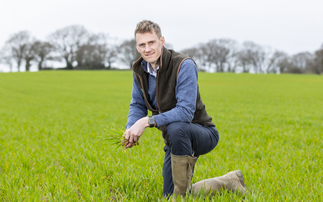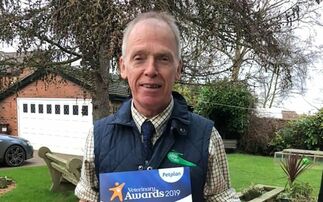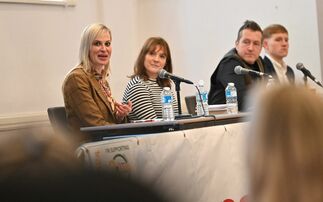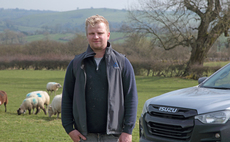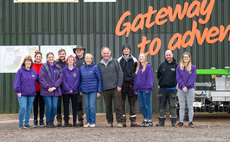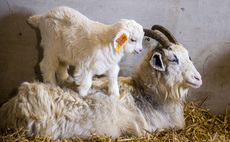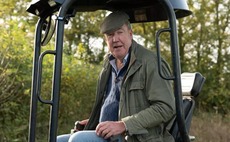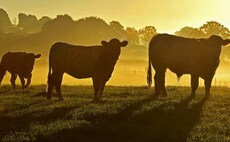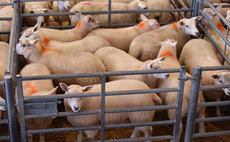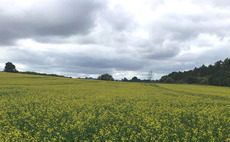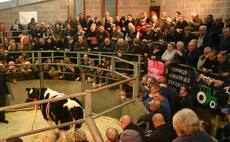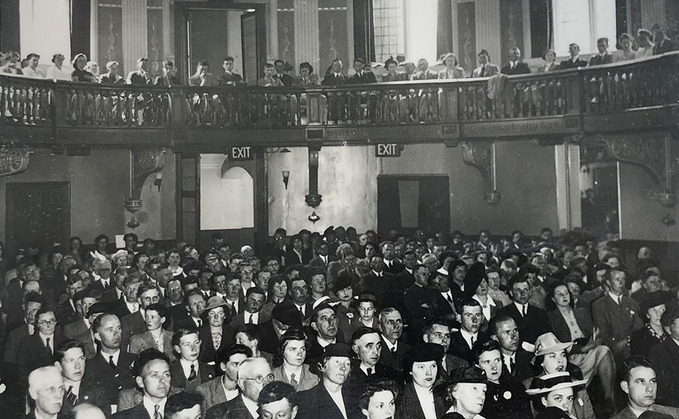
We look at the future of the National Federation of Young Farmers' Clubs (NFYFC), as the federation's numbers begin to boom again. Emily Ashworth takes a look at NFYFC's importance during its early years and through wartime, and speaks to one of its earliest and most prestigious members, Lord Henry Plumb.
If there is one thing the farming sector is renowned for, it is community spirit, and there is not much which embodies that more than the essence of Young Farmers. Although NFYFC's roots stretch back to the 1920s, its head office was not established until the 1930s, with nationwide clubs evolving quickly. But as war clouds broke, the importance of NFYFC came to fruition during the county's darkest years, providing a communal space for rural dwellers and those helping to fight the war from the fields of Britain.
James Eckley, NFYFC chief officer, says: "NFYFC's historical records show that YFCs thrived during the war years, with the number of clubs more than doubling between 1939 and 1945. The membership stood at 15,000 in 1939, but by 1945 there were 64,000 YFC members meeting in 1,234 clubs. The record growth during this period, we believe, was partly driven by the impact of the war and the desire for young people to unite with those around them during a period of such turbulence. YFC offered a place of solace and companionship for many young people who had not been called up to war, either due to their young age or because agricultural work was classed as a reserved occupation.
"YFC played a pivotal role during the war years, with many of its members focused on feeding the nation as well as holding fundraisers to support the war effort. Records show YFCs fundraising for the Red Cross, as well as raising money for a spitfire. YFC was also strengthened by funding from the Board of Education in the early 1940s and, as the country emerged from the war, YFC shifted its focus to training to encourage crafts and recognise and reward skill. It was during the 1950s that the National Proficiency Test Scheme started, with thousands of Young Farmers taking classes. By 1955, NFYFC had more than 70,000 YFC members."
Lord Henry Plumb
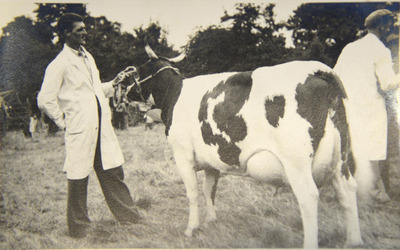
With many sent off to the front line, it was down to the country's rural community and workforce to ensure Britain's food supply. Although a relatively new concept at the time, Young Farmers' Clubs (YFCs) became an important part of people's lives during the second world war.
At 96, one of the National Federation of Young Farmers' Clubs' (NFYFC's) earliest members, Lord Henry Plumb, who has undoubtedly seen it all at such an age, can remember just how vital the organisation was to him and his peers.
He says: "Many farmers, of course, were not called up and did not go to war as food production was considered to be a very important occupation. The YFC was always seen as a part of the community and, for many years, after the end of the war, the YFC participated in the wreath-laying on Remembrance Sunday."
Growing up on a mixed farm, which included dairy, potatoes and crops such as sugar beet, he was one of the founding members of Ansley YFC in Warwickshire before becoming chair of Coleshill YFC during the second world war. It was living through such times, says Lord Plumb, and experiencing the communal support through YFC, that shaped his future.
He says: "I have always been passionate about people working together for the greater good and that, I believe, also started from my time in YFC. I can remember a meeting in Coleshill, towards the start of the war in 1939, where 100 young farmers gathered at the town hall to form a new YFC. Bombs were dropping all around us and things were changing, but the club was created, and I became its first chair.
"Meetings during the war years were wonderful. It was a great relief to us all. We had a very good team and a lot of help from local farmers at that time. These were the fathers of young people who had encouraged us to get together to really make a mark, both in farming and communicating with our friends and neighbours.
"YFC represented an opportunity to work together and that is something which has stayed with me all of my life."
Due to the war, he left school early to work on the farm. The family had a milk round which got them involved in delivering to most local families, and the beet itself was harvested and kept in clamps on the field until it was wanted.
He has, to say the least, an abundance of memories, including the gaggle of land girls who flocked to the countryside to fill the labour gap.
He says: "The usual farm workers had been drafted into the army and the work was done by land girls. There were three land girls on-farm - one was a farmer's daughter; another came from an office; and the other one had worked at a chocolate factory.
"They were all hard-working and made life possible, being involved with all the dairying and the field work. Many married the farmers they worked for. I remember when potatoes were bagged up to go to the Birmingham produce market, the land girls would do the bagging, but the chap loading the truck would call for five long thin ‘uns, or five short fat ‘uns meaning the bags, of course, and reminding us that the bags were not of the same size. The request always brought smiles to the faces of the girls."
Of course, Lord Plumb went on to take various influential roles, such as president of the NFU in the early 1970s and president of NFYFC from 1976-1986, to a move into politics, becoming president of the European Parliament in the 1980s.
He says: "I have never forgotten the letter Margaret Thatcher sent to me when I was elected as president of European Parliament in 1987. The letter mentioned how far I had come since my YFC days, rising through the NFU and into politics and how great it was for the country that I had achieved my new position. Mrs Thatcher also asked me to become a working peer in the House of Lords. I refused at the time, scribbling her a note she reportedly kept that said ‘I've got 28 countries to look after and you've only got one'."
Lord Plumb is now an NFYFC life vice-president and, although he has lived a life beyond the farm gate, he is fiercely proud of his roots and the industry which gave him the platform to thrive. He has also, of course, dedicated his time to helping others in the industry through The Henry Plumb Foundation, but is adamant that it was, without doubt, Young Farmers which ‘made' him.
He says: "My background is nothing but farming stock. My father farmed in Ansley to begin with, so I started my YFC journey in the newly formed Ansley club. The organisation was just starting back then in the 1930s. I can remember going to my first meeting at nine years old, even though you were meant to be 10. They were extremely happy days.
"I used to love debating with members of the Young Conservatives. They knew nothing about my subject, but I knew a lot about what they thought was their subject. I was very much the young farmer or farmer to them; I was always really proud of it and still am."












